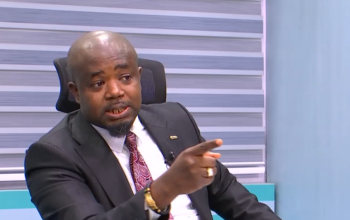The Speaker of Parliament, Alban Bagbin, seems to be emphasizing the need for accountability and collaboration in Parliament rather than finger-pointing. His criticism of the New Patriotic Party (NPP) majority caucus for blaming the National Democratic Congress (NDC) opposition highlights a deeper issue of partisanship potentially undermining parliamentary processes.
This mini-budget is often an important fiscal tool, and delays in its presentation can affect national economic planning. Bagbin’s comments likely remind both sides to prioritise the nation’s interest over political blame games. The tension between the majority and minority caucuses is surfacing again, particularly regarding leadership dynamics. Habib Iddrisu’s comment about delays caused by disputes over who leads the majority and minority is an interesting reflection of how leadership struggles can overshadow the core business of governance.
This First Deputy Majority Whip accusation adds to the back-and-forth blame game, with the Speaker, Alban Bagbin, earlier criticizing the majority for deflecting responsibility. Such disagreements over leadership roles and parliamentary control could erode public confidence in the institution, especially if these delays affect critical national decisions like the mini-budget. The Speaker’s response firmly rejecting the accusation underscores his attempt to maintain impartiality and protect the integrity of Parliament. By calling the claim baseless, Alban Bagbin is making it clear that he will not allow either side to misrepresent the reasons for the delay, especially when such statements could further polarize the House.
His mention of boycotts by the majority in his absence adds an interesting layer to the narrative. It suggests that the delays may have been influenced by internal decisions or strategic actions by the majority, rather than the minority as alleged. However, his decision not to disclose the actual reasons leaves room for speculation, possibly to avoid escalating tensions further.
This kind of pushback from the Speaker might help foster accountability, but it also raises questions about the transparency of parliamentary operations. Dr. Ato Forson’s frustration highlights the growing impatience within Parliament over the government’s apparent delay in addressing its fiscal responsibilities. His warning about the legal and political consequences of failing to present the mini-budget is a stark reminder of the constitutional obligations tied to such processes. If the Finance Minister’s absence continues, it could deepen the perception of governmental inefficiency and create further mistrust among MPs and the public.
The absence of the mini-budget during this transitional period could lead to critical delays in resource allocation and public service funding for the coming year. Beyond the political blame game, this situation emphasizes the broader implications for governance and economic stability.









